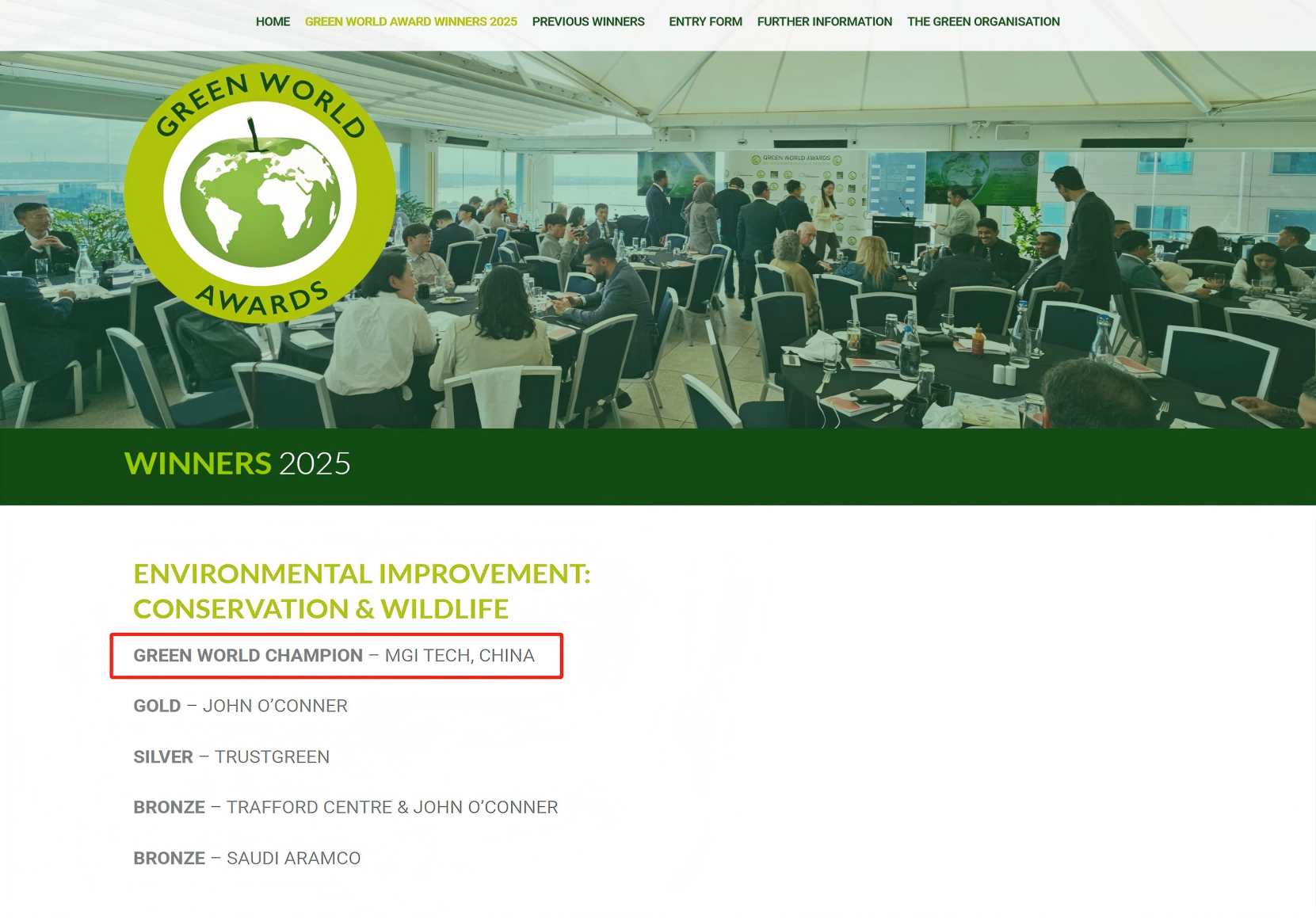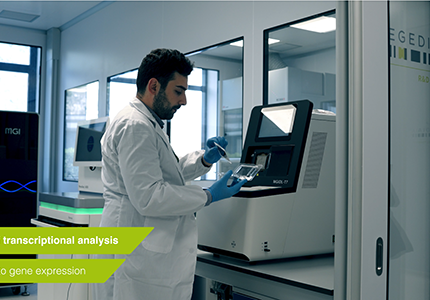Please attribute commentary to Dr. Radoje Drmanac, CSO of MGI, Co-Founder of Complete Genomics
This year marks the 20th anniversary of the completion of the first human genome sequence, which was mapped out on April 14, 2003. Initially a targeted effort to understand the impact of radiation on human beings, the Human Genome Project (HGP) set in motion countless advancements that have revolutionized healthcare and brought us the sub-$100 genome available today. Having spent north of three decades of my career contributing to our collective understanding of the human genome, I look back at my achievements and those of my peers with great pride.

Dr. Radoje Drmanac as young scientist
My Role with HGP
My involvement with HGP began in 1987, precisely when the initiative was kickstarted, in the form of a $150,000 grant opportunity provided by the US Department of Energy, to improve technologies for genome analysis, including sequencing. As part of HGP, I proposed and eventually moved to the US to develop DNA sequencing-by-hybridization, which at the time enabled more-efficient higher throughput sequencing. Around this time, my idea of massively parallel sequencing (MPS) using DNA microarrays prepared by emulsion PCR on microbeads was also born.
In essence, HGP was about making a list of genome parts. At the time, we did not understand most of them, but nonetheless, there was a list. It prompted this important demand for the sequencing of more genomes. It made shorter reads more usable because we now had a reference. It allowed exome and panel sequencing using capture probe and primers based on the genome sequence. It proved that biology is entering larger scale projects, much like sending human beings to the moon. It was also the impetus for me to start my own company, Complete Genomics, to maximize the potential of MPS.
Witnessing the Revolution of Genomics
MPS was critical in enabling routine, affordable sequencing of individual genomes. I was motivated to bring this to life through Complete Genomics. In 2005, with my team I invented patterned arrays of DNA nanoballs (DNB) that expanded MPS' capabilities to more efficient and larger-scale sequencing. Today, we call this core technology DNBSEQ™.
DNBSEQTM sequencing arrays have no clonal errors or index hopping and generate higher signal density than regular DNA arrays for greatly improved detection accuracy. With advantages including increased accuracy, decreased duplicates and reduced index misassignments, it is the exact technology currently used in all MGI's state-of-the-art sequencing instruments.
In 2010, Complete Genomics hit another milestone for being the first to provide $5,000 genome using DNBSEQ™, the most efficient and accurate MPS, before later becoming part of MGI. This achievement indicated that routine affordable and accurate whole-genome sequencing (WGS) is achievable and beneficial. And the merger could not have come at a better time, at a point in which we felt we needed a bigger organization to help us realize the full potential of DNBSEQ™.
With the needed investment and manpower to build a family of instruments, we were able to take the technology to another level of efficiency and accuracy. In a way, we were continuing the legacy of what my team and I have proven to work. MGI's platform helped propel DNBSEQ™ further and expand its applications beyond just WGS.
As part of MGI, I developed the CoolMPS sequencing chemistry in 2016, which incorporates bases by labeled antibodies. A fundamentally unique chemistry, CoolMPS avoids DNA "scars" that accumulate with traditional sequencing methods which affect the accuracy of subsequent base readings. Instead, CoolMPS introduces unlabeled nucleotides and four fluorescent labeled antibodies in its sequencing process to recognize the incorporated bases. In this new process, the natural scarless bases are added in each sequencing cycle, enabling more accurate and longer reads, greatly expanding MPS applications.
Improving Public Health by Driving Down sequencing Costs
Progress is being made in genomics at a breakneck pace, which allowed prices for genomic sequencing to steadily drop over the past decade. On that front, MGI again pushed boundaries recently by introducing the sub-$100 human genome by way of DNBSEQ-T20×2*, our ultra-high throughput sequencer that is designed to handle large population genome projects while meeting the most challenging sequencing scenarios. T20×2 can read up to 50,000 WGS per year for under $100 per genome – a huge step forward from the $3 billion and 13 years spent for one human genome in HGP.
Indeed, from single-cell or spatial omics, sequencing applications will continue to grow. From $5,000 genome to $100 in 2020 and now sub-$100. In celebration of MGI's seventh birthday this year, I'm hoping that we at MGI will be the first to achieve a $10 genome enabled by DNBSEQ™. This downward trend in pricing shows that routine genome sequencing for everybody is possible and that there is value in individual genome testing. With a projected four times the DNB array density than today to reduce reagent consumption, combined with our single-tube long fragment read (stLFR) technology which allows sequencing of data from long DNA molecules, we can provide affordable fully phased WGS and run deeper sequencing of the immune system and microbiome to holistically keep our health and ageing in check.
Since the 80s, there has always been this common goal within the field of achieving unlimited genome sequencing (because in the end, there are so many things to measure and so many genomes to sequence). That said, we will not stop even at $10 genome. Once dubbed "big science", HGP completed something few had imagined.
Genomics for All
In 2007, the first Asian personal genome was published on Nature, inaugurating a new era of large-scale personal genomics. Since then, more and more government-funded, population-scale sequencing programs have been launched. From the 1,000 Genome Project which started in 2008 and the UK's 100,000 Genome Project to the Genomes of Icelanders, these efforts are playing an critical role in helping researchers identify genetic factors that contribute to the development and progression of specific health conditions, as well as the corresponding treatments and preventive measures.
We at MGI participate in several National Genome Projects in Thailand, Indonesia and Brazil, providing these countries with a better understanding of the unique genomic complexities of their local populace. Our sequencing products are utilized as a foundation for developing personalized diagnostics, drug selection and treatment in the fields of cancer, infectious diseases, rare and undiagnosed diseases, non-communicable diseases and pharmacogenomic diseases, all of which are important areas of research that can contribute to extending human healthy life expectancy.
Looking back from HGP to now, the field of sequencing has massively advanced thanks to MPS. Because of this ability to conduct efficient sequencing in labs around the world, almost every omics today is done by sequencing. We can measure protein level in blood by sequencing barcodes and even evaluate gene activity all through sequencing. With that, the purpose of sequencing is also moving from understanding of genomes to disease prevention and treatment using omics assays. Soon, genetic sequencing will become part of our annual health checkups, where we will be able to monitor molecular health of our tissues.
From seeing the applications of the first genome sequence, to discovering the first disease-causing mutation in personal genomes we sequenced in Complete Genomics, I have no doubt that genetic sequencing will do wonders as it touches every aspect of our lives.
*Unless otherwise informed, StandardMPS and CoolMPS sequencing reagents, and sequencers for use with such reagents are not available in Germany, Spain, UK, Sweden, Italy, Czech Republic, Switzerland and Hong Kong (CoolMPS is available in Hong Kong).
*For Research Use Only. Not for use in diagnostic procedures.



 Sequencer Products: SEQ ALL
Sequencer Products: SEQ ALL














 Technologies
Technologies Applications
Applications Online Resources
Online Resources Data Bulletins
Data Bulletins Service & Support
Service & Support Introduction
Introduction Newsroom
Newsroom Doing Business With Us
Doing Business With Us Creative Club
Creative Club













